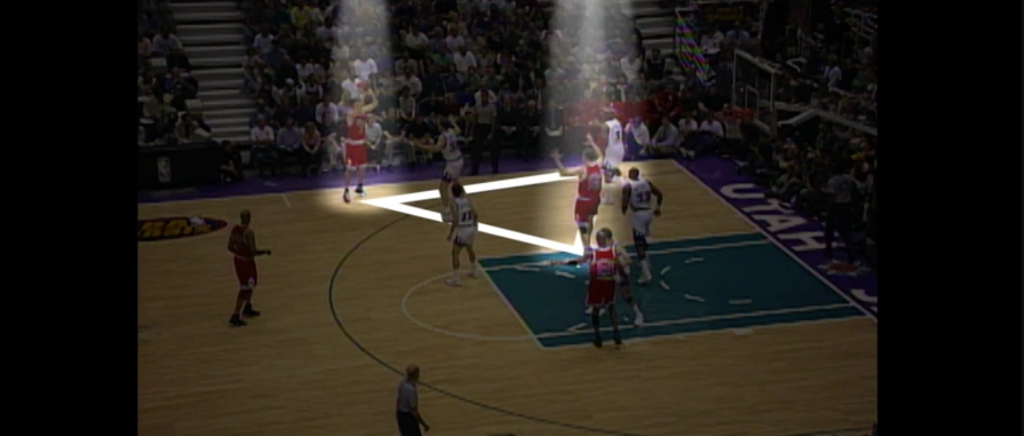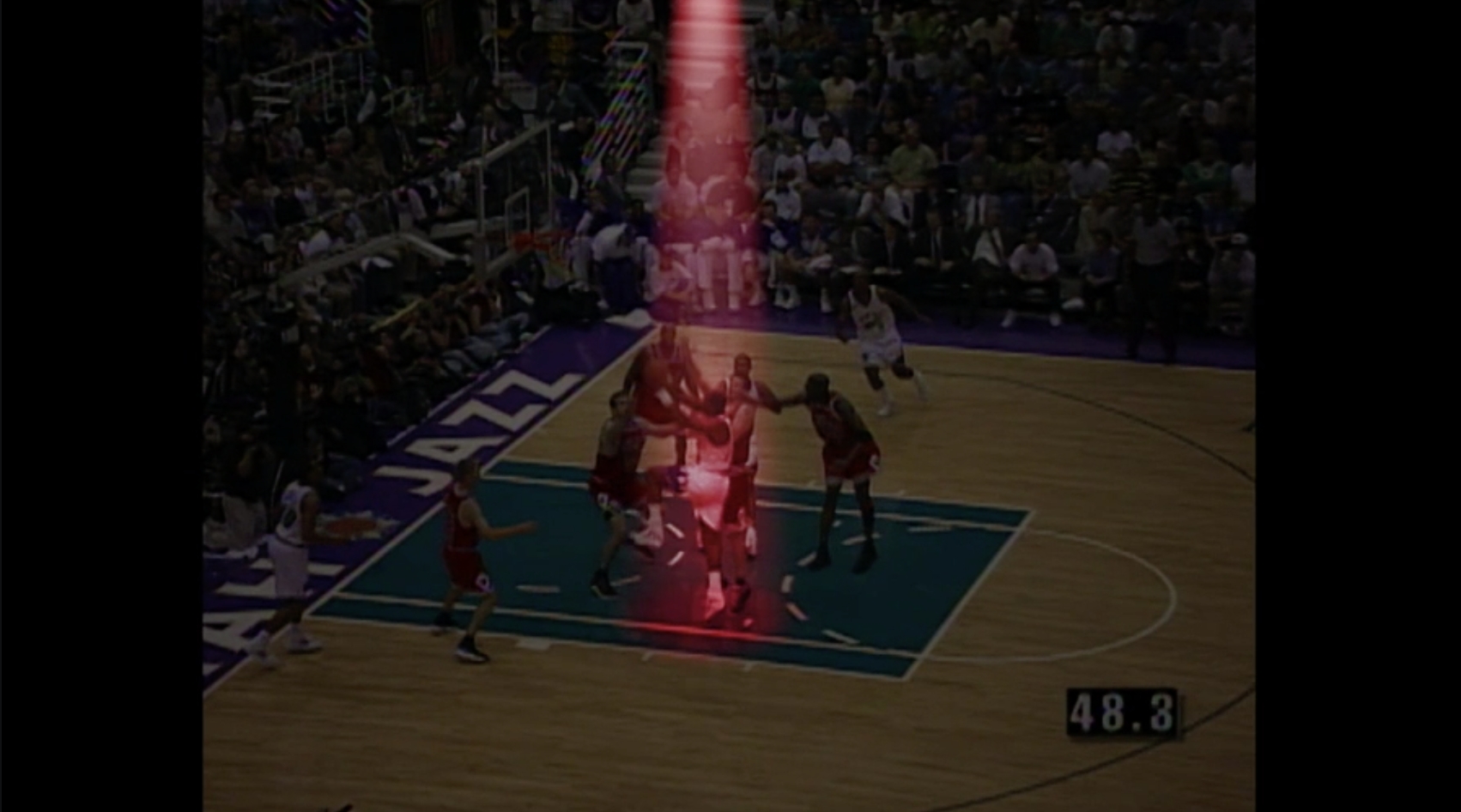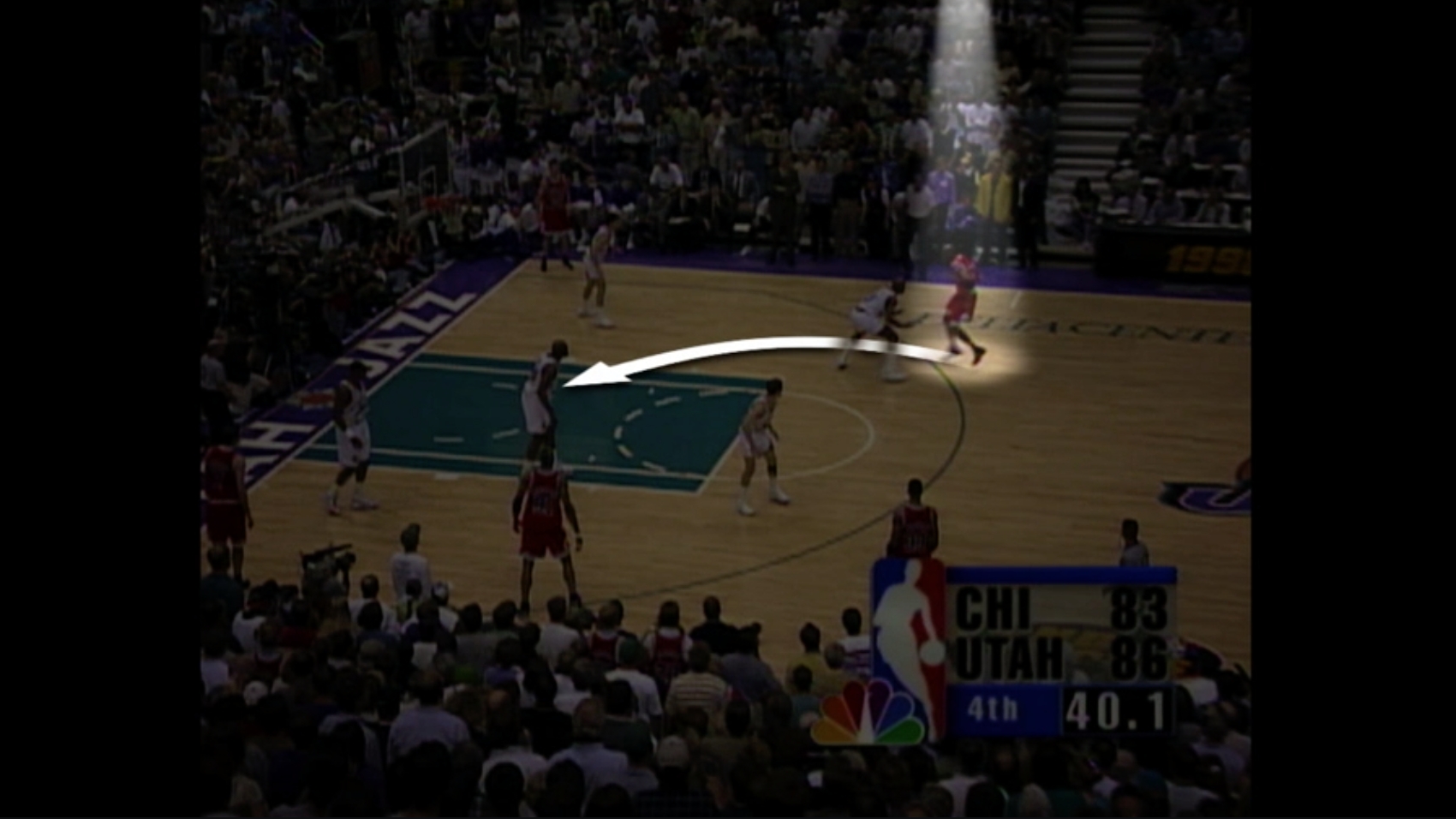
Phil Jackson is not the first to compare basketball to jazz, but by 1998, as the Chicago Bulls sailed toward their sixth championship, that team looked closer to a fine-tuned jazz combo than nearly any basketball team to take an NBA court. In the final companion episode of Detail on ESPN+ put out in conjunction with The Last Dance, Jackson shows how this latter era of the Bulls’ dynasty gutted out wins based on a shared tempo and passion rather than athletic excellence.
This is Jackson’s second episode of the companion series. In the first, he outlined the basic tenets of the Triangle offense as Chicago ran it. This time around, Jackson walks through Game 6 of the 1998 NBA Finals, a game Jackson admits was an unlikely Bulls victory in Salt Lake City, and how Scottie Pippen’s gutsy play and Michael Jordan’s clutch performance took the game home.
It was Toni Kukoc who had the hot hand going into Game 6, so the Bulls ran several simple Triangle sets early to get him started. Kukoc scored 10 easy points in the first half, attacking the mismatch he posed for Karl Malone.
“One of the options in (the Triangle) that’s kind of like jazz, is you can take off on the various themes and take off on your own little music runs if you want to, as long as you know what the melody is,” Jackson says. “The Triangle offense is a little bit like that.”However, with Utah up four going into the half, it was Chicago’s defense that had to lock in down the stretch. Malone was 8-for-11 from the field for 20 points in the first two quarters, prompting a couple fantastic observations from Jackson on the Mailman:
- “Karl has a knee lift that’s threatening. It’s probably taken out a few teeth and a few jaws. … Karl’s probably caused as much stitches as anybody in the NBA.”
- Also, Jackson notes how Malone traveled nearly every time he lifted off for his turnaround jumper from the post. Rather than pivoting to his back foot to create space, he stepped backward — a travel.

It’s clear Jackson respects Malone and John Stockton, but doesn’t seem necessarily to think much of the Jazz offense, which repeatedly uses the same screen and cut combination to free up Malone on the block with guards in motion around him. That made it pretty easy for the Bulls to lock in defensively when needed. There’s a reason the Jazz never took them to a Game 7.
Still, Chicago entered the fourth quarter down five. Jordan’s legs were falling out from beneath him. Chicago was staring down an elimination game in the Finals for the first time ever.
A few things led to Jordan’s legendary shot over Byron Russell that are often forgotten. A Howard Eisley three-pointer got called off because officials said it was let off after the buzzer, but regular game tape proves otherwise. Jackson believes the missed call was a result of bright camera flashes let off by media at every buzzer that blinded those on the court. Not that explains away the Bulls’ six championship, though. Jackson brushes it off: “Well, so be it.”
The next forgotten detail is that the Bulls specifically liked to play defense in front of their bench in the second half, and Jackson says he and Jordan discussed throughout the series the last-second rotation that resulted in Jordan stealing the ball from Malone in the post. They were to keep it as a break-in-case-of-emergency tactic. Defending in front of their bench, the Bulls were able to organize themselves and some sort of mental messaging took place between coach and superstar that triggered the Jordan ball-slap and the worst moment of Malone’s career.
Then, the shot. Says Jackson: “It was as quiet as a church on a Sunday night here in Salt Lake.”

Jordan runs the same spread isolation set that gave him a layup the last time down the floor, uses Russell’s momentum against him, pushes off into a reverse crossover, and sinks one of the defining shots in NBA history.
The final forgotten detail is that the Jazz had absolutely no clue what to run with five seconds remaining in a Finals game. Really, this happened! Everyone knows Jordan smashed the Jazz into a TKO with his shot over Russell, but it’s never mentioned that Utah had plenty of time to parry the blow and take Game 6. Instead, Stockton fires up a long pull-up three with time left on the clock. No chance. Game over. Era over.
“Their last shot is one that kind of surprised us,” Jackson says. “They don’t have enough time to get into what they want to do.”
In the end, this was the difference between Chicago and Utah. The Bulls had Jordan, the NBA’s preeminent soloist and a backing band of excellent role players and a system that held the groove together. The Jazz had one strong melody, a fiercely stubborn conductor in head coach Jerry Sloan, and no creativity in the moments that necessitate force of will and individual greatness. It’s why Chicago went 2-2 in the two championship bouts, and Utah is remembered as one of the greatest squads never to get theirs.
